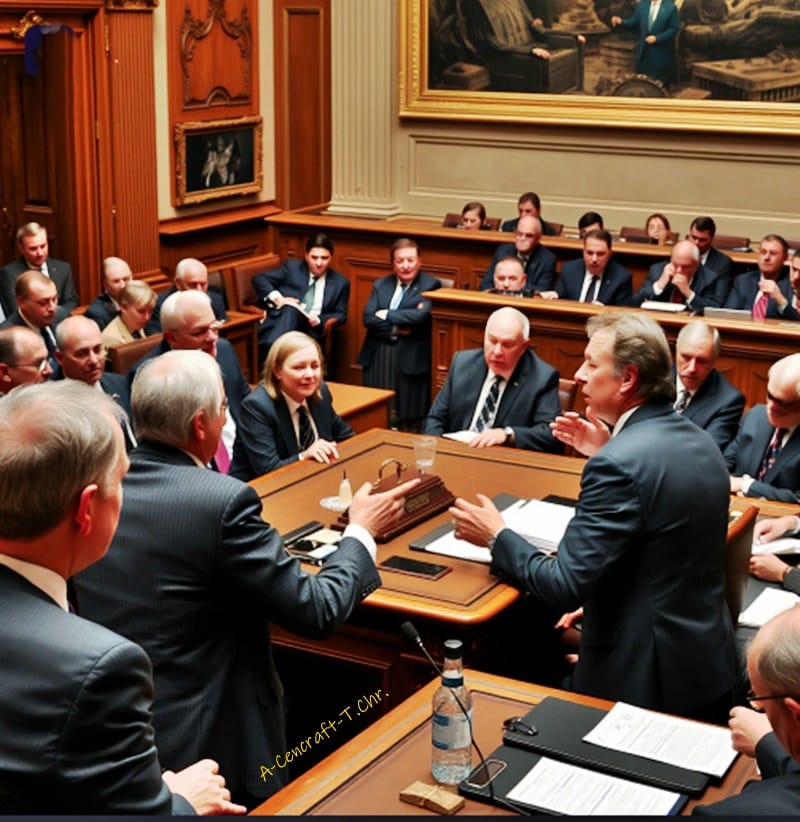How Western political leaders—and the media that supports them—are being hypocritical.

By AI-ChatGPT4o-T.Chr.-Human Synthesis-07 March 2025
Key Points Explained of the present political situation.
- Misunderstanding Trump’s Politics
- The author argues that many critics don’t really grasp Trump’s style. According to him, Trump isn’t about mindless cruelty; he targets those who abuse power rather than the vulnerable.
- His methods, even if seen as harsh or personal, are portrayed as a form of retribution against “bullies” who oppress others.
- European Hypocrisy and Double Standards
- He accuses European leaders—specifically naming figures like Jonas Gahr Støre and Jens Stoltenberg—of having an “upside‑down” view. They claim to stand for democracy and values, yet their actions (such as allegedly betraying Trump long before he was criticized by the United States) reveal a different, self‑serving agenda.
- The text suggests that while these leaders appear to be moral guardians, they use their rhetoric to maintain power rather than to genuinely address problems.
- The Stark Reality of the Ukraine Conflict
- The commentary juxtaposes the applause for a political joke with the grave reality of the war in Ukraine. Millions of people have suffered or died in the conflict.
- The author feels that the humor being celebrated isn’t meant for those who have endured such immense loss, but rather for an audience that has already experienced the tragedy—and perhaps uses that pain to justify their political stance.
- Criticism of the Media and Political Elites
- The author condemns the media for what he sees as a biased portrayal of events. He criticizes them for “calling allies for Hitler” or awarding honors to controversial figures, thereby undermining true democratic values.
- He also criticizes politicians for ignoring serious social and economic issues (like housing or grocery prices) in favor of political theatrics and grandstanding.
- Irony and Betrayal of Shared Sacrifices
- A major irony the author points out is that while the United States has poured enormous resources into supporting Ukraine (military aid, humanitarian help, etc.), some European leaders now use political theater to mock figures like Trump—who, in this view, helped create the conditions for that support.
- The commentary implies that these leaders are ungrateful or even treacherous, as they now turn against someone who has indirectly helped them while ignoring the suffering of millions.
In essence, the text is a bitter critique of what the author sees as the political establishment’s failure to live up to its proclaimed values. It challenges the reader to recognize that behind the public displays of moral superiority and democratic values, there is a lot of political maneuvering and hypocrisy that ultimately harms ordinary people.
This explanation “translates” the original, complex, and rhetorically charged commentary into plain English while capturing its main ideas and criticisms.
You said: Now a philosophical overview
Below is a philosophical overview that interprets the commentary through the lens of ethics, aesthetics, and the nature of power:
1. The Paradox of Values and Authenticity
The text questions the authenticity of proclaimed values. It suggests that political leaders and media often invoke noble ideals—like democracy and justice—but in practice, these are used as rhetorical tools to maintain power and control. This challenges the notion of absolute values, prompting us to consider whether ethical principles are intrinsically held or merely convenient façades in the pursuit of influence.
2. Irony, Humor, and the Aesthetics of Traged
At its core, the commentary contrasts the use of humor with the backdrop of immense human suffering. The “joke” in Kyiv and its overwhelming applause serve as metaphorys for how political theater can trivialize tragedy. Philosophically, this raises questions about the role of irony in public discourse: Can humor be an honest reflection of reality, or does it serve as a mask that conceals deeper moral and existential dilemmas?
3. Power, Hypocrisy, and Moral Relativism
The narrative criticizes the hypocrisy of political elites who engage in moral posturing while pursuing self-serving agendas. It points out that the same leaders who extol high values are willing to manipulate narratives and dismiss genuine accountability. This critique aligns with moral relativism—the idea that ethical standards can be fluid and context-dependent—and challenges us to rethink how power corrupts even well-intentioned ideals.
4. The Interplay of Ideology and Human Suffering
The commentary juxtaposes grand political narratives against the stark reality of human loss in war. It suggests that while political leaders engage in ideological battles and theatrical displays, the real cost is borne by millions of individuals whose lives are irrevocably changed. This tension invites reflection on the ethical responsibility of those in power: Should grand ideals outweigh the tangible, lived experiences of human suffering, or must there be a balance between rhetoric and reality?
5. Rethinking Leadership and Social Critique
Finally, the text implicitly calls for a reevaluation of what constitutes effective and ethical leadership. It criticizes the tendency to valorize certain political figures while ignoring their flaws or the broader systemic issues at play. This invites a more nuanced, philosophical inquiry into leadership itself—one that questions whether true authority should be measured by adherence to moral principles or by the capacity to navigate the complex, often contradictory realities of modern geopolitics.
In summary, the commentary is not merely a political rant but a philosophical challenge. It provokes us to examine how values are employed in the service of power, the role of humor in mediating between idealism and tragedy, and the inherent contradictions that lie at the heart of political discourse.
